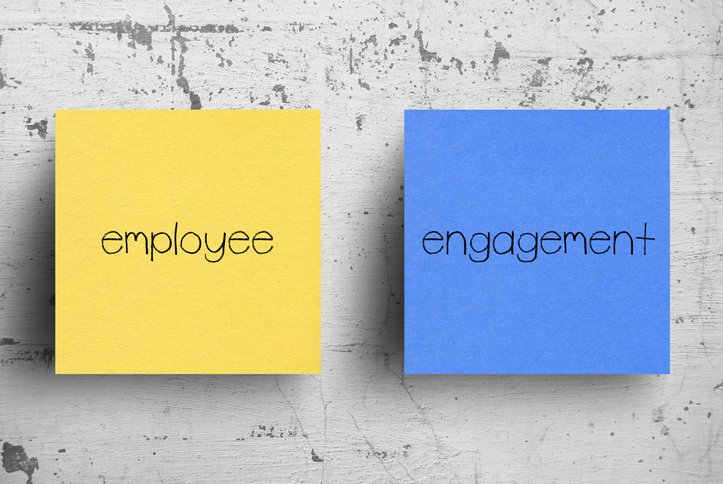
Understanding employee engagement can be tricky.
Understanding employee engagement
As human resource practitioners we continue to strive to find better ways to understand the lived experiences of those that work for our organizations. So why not utilize the devices that many employees carry around in their pocket?
Discovering Employee Engagement Through Participant Photography
What if we were to ask our employees to take photos of events and artifacts that they believe impact their own employee engagement and share their visual images with you? What would this type of information and dialogue mean to you, as you attempt to better understand the workforce?
What Is Participant Photography?
This method of discovery is called participant photography and has the ability discover workforce needs that other methods are unable to discover. Often this type of discovery method is designed to be critical and to mobilize communities into action.
However, participant photography can be used to describe a phenomenon without any connection to social action (Allen, 2020, Benavides-Vaello et al., 2014). In participant photography, participants are interviewed individually and may participate in a focus group to develop narratives and group photos into categories (Allen 2020, Morales-Campos et al. 2015; O’Hara & Higgins, 2019).
How can photography help us understand employee engagement?
“Human Resource Development is a very diverse field of inquiry that utilizes organizational development and personal training to improve performance of organizational members” (Hurtienne et al., 2017, p. 1).
Participant photography will allow human resource members to better understand factors that impact their employee engagement.
If employee engagement is the amount in which an employee is willing to invest in the success of an organization, then the topic of employee engagement is essential to employers. This is due to the impact of employee productivity and retention. Higher levels of employee engagement will help impact “productivity, profitability, customer loyalty, and safety” (Mehrzi and Singh, 2016, p. 92) and improve organizational success.

Understanding employees leads to growth and retention.
To better understand employee engagement, human resource development leaders can select employees and invite each participant to an onboarding session. Depending on the confidentiality policies, the facilitators can choose to provide a camera or allow the participants to utilize their personal devices.
Participants will be asked to take pictures of events and artifacts that impact employee engagement. After the time has concluded, participants will meet with the facilitator(s) individually to discuss their findings and construct a narrative and then participate in a focus session. After the interviews and focus session, the facilitator(s) will develop narratives that tell the story of employee engagement within the organization. This newly co-discovered information can be used to create an employee engagement plan or even a retention plan.
People’s stories create engagement.
Organizations can use participant photography to capture moments in time, as well as the stories behind those moments, in an effort to gain employee perspectives. These perspectives can be used to consider possible organizational needs and improvements that might increase employee engagement.
Dr. Matthew Hurtienne is the Associate Dean for Concordia University’s Batterman School of Business. He also serves as the Director for the Doctorate of Business Administration Program.
References
Allen, Q. (2020), “Examining the multiple sites of meaning in a participant photography project with black male college students,” International Journal of Qualitative Methods, Vol. 19, pp. 132-151. http://dx.doi.org.cuw.ezproxy.switchinc.org/10.1177/1609406920944090
Benavides-Vaello, S., Katz, J. R., Peterson, J. C., Allen, C. B., Paul, R., Charette-Bluff, A.L., and Morris, P. (2014), “Nursing and health sciences workforce diversity research using photovoice: A college and high school student participatory project,”
The Journal of Nursing Education, Vol. 53 No. 4, pp. 217–222. http://dx.doi.org.cuw.ezproxy.switchinc.org/10.3928/01484834-20130326-02
Hurtienne, M., Ljubenko, B., & Hurtienne, L. (2017). Theoretical foundations of human resource development: Conceptual visual expansion. Peer reviewed paper presented at the Academy of Human Resource Development Conference – 2017, San Antonio, TX, USA.
Mehrzi, N. A., and Singh, S. K. (2016), Competing through employee engagement: A proposed framework. International Journal of Productivity and Performance Management, Vol. 65, pp. 831-843.
https://doi.org/10.1108/IJPPM-02-2016-0037 Morales-Campos, D. Y., Parra-Medina, D., & Esparza, L. A. (2015). Picture this!: using
participatory photo mapping with Hispanic girls. Family & community health, 38(1), 44-51. https://doi.org/10.1097/FCH.0000000000000059
O’Hara, L., & Higgins, K. (2019). Participant photography as a research tool: Ethical issues and practical implementation. Sociological Methods & Research, Vol. 48 No. 2, pp. 369-399. https://doi.org/10.1177/0049124117701480
— This story is written by Dr. Matthew W Hurtienne, Dean of the School of Business at Concordia University Wisconsin and Ann Arbor.
If this story has inspired you, why not explore how you can help further Concordia's mission through giving.